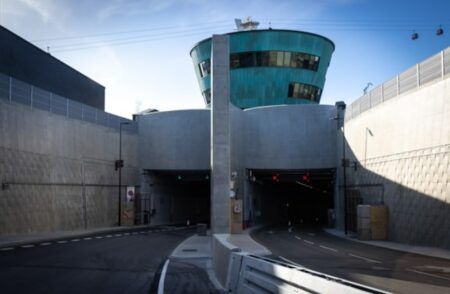The UK government has awarded local authorities across England a total of £4m (US$5m) in funding for new technology projects that will cut congestion, speed up journeys and clean up the environment.
A total of 19 councils across England will receive between £50,000 and £300,000 (US$62,760-US$376,570) each for their ideas to improve journey times through digital innovation. The government money will be spent on developing cutting edge technology, such as smartphone apps and sensors, which can be used to cut congestion, improve parking in city centers, and alert drivers when electric vehicle (EV) charging points become available. Apps that notify motorists of congestion and available parking spaces, and real-time journey information for visually impaired passengers, are just some of the projects that will receive a share of the new technology funding.
Some of the successful projects to win funding include:
£285,000 for Portsmouth to develop a platform for the city’s Traffic Management Center, enabling communication exchange between vehicles, infrastructure and other vehicles (V2X);
£234,000 for Blackpool to use Bluetooth technologies to cut traffic congestion;
£182,000 for Dorset to provide advance congestion warnings for drivers on the A31 using a smartphone app;
£300,000 for Warrington to provide real-time information to businesses and public through on-street information displays, social media and phone apps;
£150,000 for Coventry for a real-time bay availability system across 450 pay and display parking spots;
£204,000 for the London Boroughs of Westminster, Hounslow, Hammersmith, and Fulham, to roll out a new generation of EV charge points that will provide real-time data to motorists when they are available;
£50,000 for Peterborough to use digital technology to provide real-time journey information directly to visually impaired people.
Announcing the winners of the new funding, UK Roads Minister, Andrew Jones, said, “I congratulate the winners for coming up with cutting-edge, innovative ideas that will transform journeys for passengers and motorists across the country. Technology is rapidly evolving, and this important work shows that if we get it right, it can cut congestion, speed up journeys, clean up the environment, and improve accessibility. The way we travel continues to change, and technology has a valuable role to play through co-operative intelligent transport systems. By enabling communication between vehicles, traffic signals, roadside sensors, as well as with other vehicles, the resulting information can bring increasing benefits, both to road operators, in terms of improved network management, and to road users, through the information they need, in real-time, to make the most of their journey.”
Jones continued, “Cities face a common challenge of accommodating significant rising demand for transport over the next 20 years, boosted by continued population growth, while meeting challenging carbon reduction targets and delivering customer expectations of transport that is safer, cleaner and greener, less congested, and more reliable. Technology and information have huge potential to generate innovative solutions in these urban areas, and deliver more joined up and seamless multi-modal solutions which make better use of customer time.”




